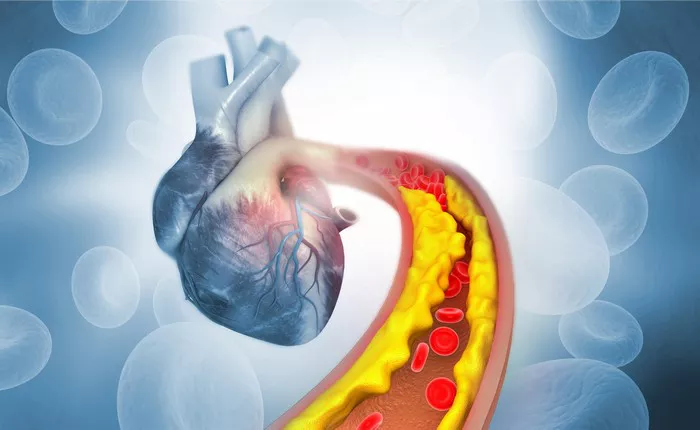In the ongoing battle against the COVID-19 pandemic, vaccines have emerged as a critical tool in the arsenal of public health measures. Among the vaccines deployed worldwide, the Pfizer-BioNTech COVID-19 vaccine has been at the forefront. However, concerns have arisen regarding its potential association with myocarditis, an inflammation of the heart muscle.
What Is Myocarditis?
Myocarditis is a condition characterized by inflammation of the heart muscle, often triggered by viral infections, autoimmune diseases, or certain medications. It can lead to a range of symptoms, including chest pain, shortness of breath, fatigue, and in severe cases, heart failure or sudden cardiac arrest. While myocarditis is a rare complication, its occurrence has drawn attention amidst the mass vaccination campaigns against COVID-19.
Reports of Myocarditis Following Pfizer Vaccination
Since the rollout of the Pfizer-BioNTech COVID-19 vaccine, there have been reports of myocarditis occurring in some vaccine recipients, particularly among younger age groups. These reports have prompted investigations by health authorities and raised concerns among the public.
Data And Studies
Several studies have been conducted to assess the potential link between the Pfizer vaccine and myocarditis. One notable study published in the New England Journal of Medicine analyzed cases of myocarditis following COVID-19 vaccination in Israel, where the Pfizer vaccine was widely administered. The study found an association between the vaccine and myocarditis, primarily in young males, with most cases being mild and resolving without complications.
Similarly, data from the Vaccine Adverse Event Reporting System (VAERS) in the United States have identified cases of myocarditis following mRNA COVID-19 vaccination, including the Pfizer vaccine. However, it’s essential to note that VAERS data represent reported events and do not establish causation.
Mechanism And Hypotheses
The exact mechanism by which the Pfizer COVID-19 vaccine might cause myocarditis remains under investigation. One hypothesis suggests that the immune response triggered by the vaccine, particularly in younger individuals with robust immune systems, may lead to an exaggerated inflammatory response affecting the heart muscle.
Another theory posits that the vaccine’s lipid nanoparticles, which deliver the mRNA encoding the spike protein of the SARS-CoV-2 virus, could potentially trigger an inflammatory reaction in susceptible individuals.
Risk-Benefit Analysis
Despite the reported cases of myocarditis, experts emphasize that the benefits of COVID-19 vaccination outweigh the risks, especially considering the severe health consequences of contracting the virus. COVID-19 itself can lead to myocarditis and other cardiovascular complications, further underscoring the importance of vaccination in preventing severe illness and death.
It’s crucial to weigh the risk of myocarditis against the broader public health benefits of vaccination, including reducing transmission, protecting vulnerable populations, and ultimately bringing an end to the pandemic.
Regulatory Response
Health regulatory agencies, including the U.S. Food and Drug Administration (FDA) and the European Medicines Agency (EMA), have been closely monitoring reports of myocarditis following COVID-19 vaccination. In response to emerging data, regulatory authorities have updated vaccine safety information and provided guidance to healthcare providers and the public.
Mitigation Strategies
In light of the potential risk of myocarditis, healthcare providers and vaccine recipients should be vigilant for symptoms such as chest pain, shortness of breath, or palpitations following vaccination. Prompt recognition and management of myocarditis are essential for minimizing complications and ensuring optimal outcomes.
Furthermore, ongoing research aims to better understand the risk factors associated with vaccine-induced myocarditis and develop strategies to mitigate these risks while maintaining high vaccination coverage.
Conclusion
In conclusion, while reports of myocarditis following Pfizer COVID-19 vaccination have raised concerns, the available evidence suggests that such cases are rare and often mild, with the majority resolving spontaneously. The benefits of COVID-19 vaccination in preventing severe illness and controlling the spread of the virus far outweigh the potential risks of myocarditis.
Health authorities continue to monitor vaccine safety and provide guidance to healthcare providers and the public. It’s essential to remain informed, weigh the risks and benefits, and make informed decisions about vaccination based on individual circumstances and public health considerations. As the world continues to navigate the challenges of the COVID-19 pandemic, vaccination remains a critical tool in our collective efforts to overcome this global health crisis.
FAQs
How many shots does the Pfizer vaccine require?
The Pfizer-BioNTech COVID-19 vaccine requires two doses for full vaccination. The doses are typically administered three weeks apart. It’s essential to complete both doses to achieve the highest level of protection against COVID-19.
Is the new coronavirus vaccine still useful?
Yes, COVID-19 vaccines, including the Pfizer-BioNTech vaccine, remain highly useful in combating the spread of the virus and preventing severe illness and death. Vaccination is a critical tool in controlling the pandemic and returning to normalcy. While breakthrough infections can occur, vaccinated individuals are less likely to experience severe symptoms or require hospitalization compared to unvaccinated individuals.
Are Pfizer and Compitax the same?
Pfizer and Compitax are not the same. Pfizer is a pharmaceutical company that developed the Pfizer-BioNTech COVID-19 vaccine, which has been widely used in vaccination campaigns worldwide. On the other hand, Compitax appears to be a misspelling or confusion with another entity. It’s important to ensure accurate information when discussing pharmaceutical companies and their products.

